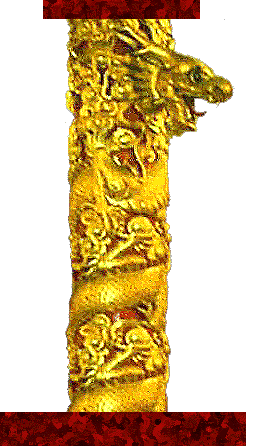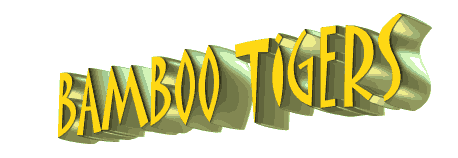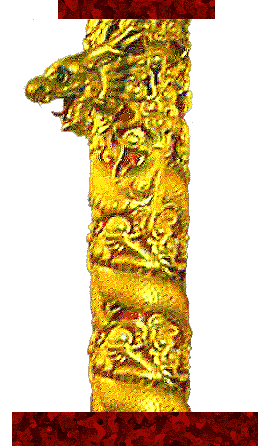| |
For Officer Tim Simmons, in particular, persistence in all things had become a way of life. Initially, he had failed the San Francisco Police Department's examination by only one question. He studied hard and took it again. He passed the written test this time, but had to waive the physical agility test because of a pulled muscle. Undaunted, he worked out daily for three solid months. The second time he ran through the obstacle course like a halfback and was finally sworn in as a cop. Simmons never let failure defeat him. He had embraced the advice given him long ago by his father: "If you want to succeed at something, you have to try harder than the next guy."
Although their efforts in the Gene Fong case had thus far led to nothing, both Simmons and McKenna knew they would just have to keep plugging.
While they mulled over what little evidence they had, Homicide Detail's telephone rang. McKenna answered. A Police Department Communications dispatcher was on the line.
The body of a young Chinese male had been found on San Bruno Mountain in the Daly City limits. The "mountain"--at somewhat more than a thousand feet really only a hill--was a local landmark. Enormous white letters painted near its summit proclaimed "South San Francisco, the Industrial City," and caught the attention of all motorists entering San Francisco from the south. Because of their acknowledged expertise, Simmons, McKenna, and Inspector Hobart Nelson were being requested by the sister jurisdiction to respond to the Daly City Morgue to assist investigators of the Daly City Police Department. The youth reportedly had been killed by close-range gunshots to the head, neck, and shoulders.
At the morgue an officer asked the men from San Francisco, "Can you identify this kid? Nobody down here seems to have any idea who he is."
The San Francisco officers viewed the corpse. Though seasoned cops, they blanched at the pitiful sight. In addition to several bullet holes, the body showed signs of burns and bore massive bruises evidencing a brutal beating.
Simmons, noticing that the boy's hands had been bound with a shoestring, observed, "Somebody tied his hands in front of him. Do you know him, John?"
McKenna shook his head. "No, but I think we'd better get Huegle and Philpott down here. They might recognize him although I don't see how anybody could. My God, the poor little guy's face is pounded to a pulp!"
After years in the Department, one of the things that still gripped McKenna's guts was physical abuse of a young person. A devoted family man, with five youngsters of his own, the inspector was especially sensitive to child abuse, and the boy who lay dead before him was hardly more than a child.
"I don't care what he did," McKenna sighed. "He didn't deserve to die like this!"
Also recognized experts on the Chinatown crime scene, George Huegle and Diarmuid Philpott of San Francisco's Intelligence Detail responded immediately to Daly City. Neither could identify the dead youth.
The police officers all returned to San Francisco, and submitted fingerprints from the corpse for comparison with prints in the police files. In short order a match was made.
The dead boy was Lincoln Louie.
Intelligence records revealed his association with the Joe Boys. Further evidence accumulated. The Italian meter collector's list of three automobile license plates was brought out with his eyewitness report of the kidnapping. Until that time, no one had been able to put the information to effective use as the abduction had gone unreported by Lincoln's mother, whose son's increasingly mystifying habits of late, and her own long work schedule, had not allowed her to realize that the boy was missing.
It fell to John McKenna to inform Mrs. Louie of the fate of her only child. With a heavy heart, he drove up to Chinatown and parked near Asia Garden. He entered the cavernous establishment and asked for the boss, then for Mrs. Louie.
A small woman came from the kitchen wiping her wet hands on an apron. A covey of fellow employees gathered around, sensing the visit was official. McKenna, a portly man who loomed large among the slight Chinese, cleared his throat.
"Mrs. Louie," he began, "I have something to tell you."
The lady stared up at him blankly.
"She not unnerstand English," volunteered another worker. "I translate."
Further disheartened by being forced to convey the story through an interpreter, McKenna hoped that his sympathy might show fully in his demeanor. He couldn't keep the tears out of his eyes.
He explained. Lincoln's mother wailed and fell to her knees. Others took up the wailing. McKenna backed away once the awful details were conveyed. Such an errand left scars inside a man, but he knew no suffering of his could compare to that of the weeping woman who lay raglike on the floor of the restaurant. As he turned to depart, he was stopped by the manager at the door.
"She won't have to go nowhere, will she?" the little man whined. "I need her to keep working today."
Filled then as much with disgust as he'd been filled with heartfelt concern a few seconds before, McKenna turned his back on the manager and stomped out.
Later that afternoon, "Fat" Paul Wong was brought in to Homicide for questioning. He was the Wah Ching McKenna and Simmons had stopped the day before at Portsmouth Square while the Lincoln Louie kidnap was in progress.
Fat countered the officers' questions for an hour or so. He was tough. Simmons and McKenna and their colleagues persisted.
"No more bullshit, Fat," Simmons growled. "You know something about the Gene Fong killing, and I'm laying a bet you know about Lincoln Louie, too. Listen, we've got the license numbers of the cars involved. They're all registered to the fathers of your Wah Ching buddies. We're getting those guys in here as fast as we can. You'd better cough up now because if you don't and we find out later you had something to do with this, you'll pay for it. I guarantee you that."
Fat slumped deep in his chair. "Shit! All right. All right! Yeah, I know a little bit, but I didn't have nothin' to do with nothin'. I swear. You see, one of the guys called me up Friday night and told me they grabbed a kid off the street, some Joe Boy kid. I didn't even know who it was they got. They took him down to Milpitas. They beat him up. They tried to get him to tell where all the Joe Boys live and how many guns they got and where they got 'em at. Stuff like that. I...I...."
"You what?" prodded Simmons.
"Well, I was on my way to meet the guys when you picked me up at Portsmouth Square yesterday. If it hadna been for that, I woulda been with 'em. I mean, I didn't know what they was gonna do, but I woulda been there. But I wasn't."
Simmons leaned back. He had enough experience with the gang boys to know when he was hearing the truth. "I hope you appreciate what we did for you, Fat. If we hadn't stopped you at Portsmouth Square yesterday, you'd really be on the rack now. You'd have been with the kidnappers."
Fat let out his breath. "Yes, sir, I know. But I wouldna did nothing."
"Yeah," cracked McKenna, "but if you don't get away from the gang, Fat, and straighten up and make yourself a good life, you won't wind up anywhere except dead or in jail. Give yourself a chance, kid."
"Yes, sir," promised Fat, the only thing really on his mind being his relief at getting off the hook. For him, as for most of the gang kids, tomorrow would have to take care of itself.
David Yee, whose father's car was one of the three involved in the kidnap-murder, was brought in after Fat.
After telling him that they had the license number and that Lincoln Louie's body had been found, the policemen advised him they were sure it was Lincoln Louie who had been the victim of the kidnap. Therefore, David was implicated in a murder.
The boy soon admitted that he was part of the group. "That's not what we had in mind, though, the kidnapping, that is. When we started out, we were gonna do something else."
McKenna perked up his ears. "What do you mean by 'something else?'"
David squirmed and wrung his hands. "Well, it's a year since Anton got killed. We was gonna buy flowers and put 'em on his grave, and Wayne's, too. Us Chinese, we're sentimental, y'know."
His references were to Anton Wong, the powerful and charismatic leader of the older Wah Ching, assassinated by Joe Fong's kid brother the year before, and to Wayne Fung, leader of the younger Wah Ching, who was executed gangland style the previous August.
"We was driving along Stockton Street, and somebody seen Louie at the bus stop. 'There's Lincoln Louie!' they yelled, and somebody said, 'Let's get him! He's a Joe Boy.'"
"Who said that?" asked one of the policemen. "A girl? We know there were girls with you in the cars."
David frowned. "I don't remember. But it was Perch Chan said we oughta take him down to John's place in Milpitas."
"John who? Don't play any games, David. John who?"
"Anton's brother, John Wong. He's got an apartment down there, him and his wife. They just got married. So we took the kid there, and we...they took turns beating on him. And they choked him, too. They wanted him to talk, you see. They figured since he was a Joe Boy he knew a lot of things they needed to know."
"Where were the girls while all this was going on?", McKenna asked.
"Well, they was in the bedroom listenin' to music. They didn't see much of it. But John's wife, after the other girls was gone, she seen how hard everybody was working, and she said, 'You guys hungry?' So she went out and got some food. She got ice cream. She's a good wife."
Disgusted, the policemen glanced at each other.
A frantic look crossed David's face. "But I didn't have nothin' to do with killing him! Honest! He was alive when I left about six in the evening. I wasn't around anymore. I drove the girls home, y'know. I didn't go back. I didn't know they was gonna do that!"
The youth agreed to accompany the officers to Milpitas and lead them to the scene of Lincoln's torture. In unmarked cars, San Francisco and Daly City detectives set out with David Yee along Highway 101. An hour later, they approached a town of 40,000 nestled at the foot of San Francisco Bay near San Jose.
| |
|









